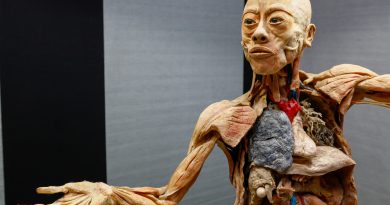who believes that all human beings are inherently good
Provides an excellent analysis of the importance in understanding respect as an incentive for the moral law. Arminius' own teaching (and Wesley's) is that we are all born in sin, but that God's prevenient grace is already at work in our lives. Get unlimited access to thousands of articles and videos. Despite the negative connotation of "selfish," selfishness is not always bad. He dedicates the remaining two books of Religion to cultivating the idea of an ethical community which requires as a necessary condition for participation that an individual possesses a disposition transformed by a revolution. While the revolution may be characterized as a singular event, it is also the first step in a new life of unending progress toward goodness (Religion 6:67). World prehistory: a brief introduction. Our acquisition of a renewed disposition requires a kind of moral habituation. These are quite recent, emerging some five thousand years ago in Mesopotamia (5). Philosophers from Hobbes to Rousseau, Malthus to Schopenhauer, whose understanding of human evolution was limited to the Book of Genesis, produced persuasive, influential and catastrophically. Are People Basically Good or Basically Bad? - Billy Graham Evangelistic How Many Friends Do You Really Need in Adulthood? How and why does Rousseau argue that man is naturally good or evil? Even if you believe were naturally good, however, the question remains whether its possible to harness our best qualities under modern social and economics conditions. Rather, it is from these positive characteristics within our predisposition of humanity that evil becomes a possibility and constitutes a propensity to egoistic and malignant self-love as self-conceit. Counting and finding real solutions of an equation. Presents an alternative proof for evil as an innate propensity from Wood and Allison. Both studies showed the same patternwhether people were forced to use intuition (by acting under time constraints) or simply encouraged to do so (through priming), they gave significantly more money to the common good than did participants who relied on reflection to make their choices. So, while the moral agent recognizes the requirements of the moral law and wishes to practice self-restraint by virtue of its normative requirements, the moral law is neither universally adopted nor gladly accepted in all cases and at all times. Although Kant, for the most part, dedicates only the first two chapters of the Religion to radical evil, he anticipates some of its issues in the Groundwork for the Metaphysics of Morals (as heteronomy), in the Critique of Practical Reason, and in the Metaphysics of Morals. Young children are also very good at imitating others. This is one area of agreement between Calvinists and Arminians. Authoritarian power structures arise only in complex societies. Humanism is a rational philosophy informed by science, inspired by art, and motivated by compassion. The good life is a process, not a state of being. In Adams Fall, We Sinned All,, Quinn was the first to present the propensity to evil, and its adoption by the disposition, understanding the disposition (, Quinn, Philip. Rousseau thought that once human nature has been corrupted the chances for redemption are vanishingly slight. When we hear about bad things happening, especially when lives of many are lost or damaged at the hands of a few, we need to remind ourselves that people are . For, as he presents it in his Groundwork for the Metaphysics of Morals and elsewhere, the universal moral law does not entirely depend upon demonstrating the existence of God, but rather upon reason (though he believes that its source cannot be divorced from the concept of God). Silber, John. Taken together, these studies7 total experiments, using a whopping 2,068 participantssuggest that we are not intuitively selfish creatures. Haunted houses push buttons in our brains that evolved before houses existed. As an incentive, the moral law competes with inclination for acceptance by the practical will, against which inclination sometimes wins. BBC News. In this study, they asked 341 participants from a nationwide sample about their daily interactionsspecifically, whether or not these interactions were mainly cooperative; they found that the relationship between processing speed (that is, intuition) and cooperation only existed for those who reported having primarily cooperative interactions in daily life. U. S. A. Kant on the Natural Predisposition to Good and the Propensity to Evil, The Propensity to Evil: Universal and Innate, The Source of the Propensity to Radical Evil: Two Views, Overcoming Evil: The Necessity of an Ethical-Religious Revolution, References and quotations in this encyclopedia article have used the English translation of Kants works provided by Cambridge University Press, but the textual references themselves are to Kants. Intuition is often automatic and effortless, leading to actions that occur without insight into the reasons behind them. An a priori proof for the innate source of this radical evil can easily be drawn out through an examination of Kants observation in the Critique of Practical Reason that the moral law strikes down this incentive. Boston, MA: Little, Brown and Company. The operative in question here is that of manifestation of the good principle, or humanity in its moral perfection, as displayed in the disposition of the Son of God in history (Religion 6:77). When it really comes down to itwhen the chips are down and the lights are offare we naturally good? We care about our reputation, as well as our material wellbeing, and our desire for social standing drives us into conflict as much as competition over scarce resources. Flirting is a skill. God Himself states that "the will of man's heart is evil from his youth" (Genesis 8:21) and that "every inclination of the thoughts of the human heart was only evil all the time" (Genesis 6:5 . At the end of Republic VI, Plato includes souls into the intelligible realm of forms, placing them closer to the form of the good than physical objects. The stereotype is pervasive, but the scientific evidence is weak. On the other hand,. An agents moral character as a whole is determined ultimately by which maxim is going to be the dominant maxim for the choice of maxims. The propensity to evil is affirmed by Kant as a universal yet non-necessary feature of every human being. Jean-Jacques Rousseau (1712 1778) believed that man is naturally good and that vice and error are alien to him. Babies are humans with the absolute minimum of cultural influence they don't have many friends, have never been to school and haven't read any books. By clicking Accept all cookies, you agree Stack Exchange can store cookies on your device and disclose information in accordance with our Cookie Policy. Scientists Probe Human Nature--and Discover We Are Good, After All Evil remains a deed that is the product of an individuals capacity for choice, and for this reason the individual still retains the responsibility for its commission. Although no single set of studies can provide a definitive answerno matter how many experiments were conducted or participants were involvedthis research suggests that our intuitive responses, or first instincts, tend to lead to cooperation rather than selfishness. Differences in the early cognitive development of children and great apes. It is not just a matter of the person and the immediate situation. The self-domestication hypothesis: evolution of bonobo psychology is due to selection against aggression, Animal Behaviour,83(3), 573-585, https://doi.org/10.1016/j.anbehav.2011.12.007. A couple of weeks ago, I wrote an article titled: "Being good is in our nature.". After all, humans are complex creatures capable of both good and evil. Christianity teaches that the universe was created through love by an intelligent power, namely the God of the Bible. Why Do Women Remember More Dreams Than Men Do? Nevertheless, when an alternative maximthat of self-conceitis chosen as a governing maxim, then this egoistic alternative becomes the basis for maxim choice and the moral law is subordinated to an alternative governing maxim along with every other maxim. Infants saw a second scene in which the climber shape made a choice to move towards either the helper shape or the hinderer shape. Practice Improves the Potential for Future Plasticity, https://doi.org/10.1016/j.anbehav.2011.12.007, Of Physical Activity, Fat, and Pharmaceuticals. That is, are we predisposed to act cooperatively, to help others even when it costs us? And on that question, it is Rousseau not Hobbes who gives us the most reason to despair. Kants Theory of Moral Sensibility: Respect for the Moral Law and theInfluence of Inclination, in his. Instead, were naturally self-interested and look out for ourselves first and foremost. Connect and share knowledge within a single location that is structured and easy to search. ', referring to the nuclear power plant in Ignalina, mean? The overriding message of Rousseaus critique of Hobbes is that it didnt have to be this way. . Or could it be that cooperation is our first instinct simply because it is rewarded? A defense of his earlier claim (1960), that Kants account of radical evil does not do justice to instances of diabolical evil in the twentieth century. There are two main stumbling blocks to the study of Locke's moral philosophy. The underlying theme was that human beings are essentially good, with evil being the result of our animal . Any action that jeopardises humans' relationship with God is a wrong . If the climber moved towards the hinderer the infants looked significantly longer than if the climber moved towards the helper. In both cases an imputation of guilt or righteousness occurs without the other person committing it. Only this way would it be possible to restrain the natural impulses of human beings towards greed and selfishness. Yet it is not by itself evil. Two incredibly influential philosophers that participated in the debate were Jean-Jacques Rousseau and Thomas Hobbes. Working off of the evidence Ram Tobolski has provided us with, Plato believes people to be similar in their attempts to do or prefer only good to evil. What is the biblical basis for the idea that people can't stop sinning? What makes these findings so compelling is that humans do not have other clear cognitive differences compared to the apes. We are living in the midst of nightmarish inequality where a handful of Big Men billionaires stand astride the globe. What is notable about the first two chapters of Religion is that he addresses this phenomenon in a manner that his Enlightenment predecessors had not: The failure of human moral agents to observe the moral law is symptomatic of a character or disposition (Gesinnung) that has been corrupted by an innate propensity to evil, which is to subordinate the moral law to self-conceit. Nigel Barber, Ph.D., is an evolutionary psychologist as well as the author of Why Parents Matter and The Science of Romance, among other books. Hence human sensuality and appetite alone could hardly make human beings radically evil. The time infants spent looking in each of the two cases revealed what they thought of the outcome. What doctrines teach that people are inherently good or bad? This again suggests that our intuitive impulse is to cooperate with others. The first regards the singular lack of attention the subject receives in Locke's most important and influential published works; not only did Locke never publish a work devoted to moral philosophy, but he dedicates little space to its discussion in the . we are sinful even before we commit our first sin. Sorry, I just read your question again after posting and it appears I gave you 'the answer' but you only wanted the 'name' of it. This focus on first instincts stems from the dual process framework of decision-making, which explains decisions (and behavior) in terms of two mechanisms: intuition and reflection. Whether or not the moral law is followed gladly or reluctantly is in part a function of its ability to generate respect, which serves as an incentive for its adoption. For thousands of years, philosophers have debated whether we have a basically good nature that is corrupted by society, or a basically bad nature that is kept in check by society. In fact, their actual positions are both more complicated and interesting than this stark dichotomy suggests. In the narrow sense (as Wille) it refers to the practical will that formulates laws as the faculty of desire whose inner determining ground, hence even what pleases it, lies within the subjects [practical] reason. Practical will is considered in relation to the ground determining the choice of action (Metaphysics of Morals, 6:213), and through it an agent formulates both hypothetical and categorical imperatives. The acquisition of the holy disposition through such a revolution requires that we take up the disposition of the human personification of the holy will, present to us in our reason as the archetype of moral perfection. They concluded it is the situation and not the person that is to blame. If you think that modern life is characterised by self-interest and competition, then one response is to sit back and wonder at how such individualistic creatures ever managed to form peaceful societies. As a rational and guided concern for ones own livelihood and well being (Eigenliebe, philautia; Critique of Practical Reason 5:74) self-regard constitutes a healthy benevolence towards ourselves. Offers discussion on importance of the disposition for the acquisition of evil as an alternative incentive to the Good. For we find our nature as sensible beings so constituted that the matter of the faculty of desire (objects of inclination, whether of hope or fear) first forces itself upon us (Critique of Practical Reason 5:74). @BruceAlderman - thanks for the link and it is useful, however, I am not saying Arminius did not believe in something that seems a lot like total depravity, I am saying from what I have read real Arminians denied the 'imputation of guilt'. This reality refutes persistent claims of human intellectual superiority (3). At the same time, Kant also appears to recognize that, in practical terms and from the human perspective, we might need reassurance that our efforts are successful. Taken together, both predispositions and propensities serve to form an individuals mindset or character (Gessinnung), for the development of which every human being is responsible. The alternative view for the basis for the propensitys innateness is that the subordination of the moral law to the incentive of self-conceit is an entirely timeless and intelligible deed (That). A second is that, while Kant is committed to holding that the propensity to evil is universal, his positions on the revolution fail to properly allow for the possibility of grace, the doctrine that God is able to act in human affairs and effect change within a persons moral disposition. The way to make sense of this result is if infants, with their pre-cultural brains had expectations about how people should act. On the other hand, a wide or imperfect duty is one such that, although we are required to strive for it, is not something that we can be expected to attain. Biocentrism (from Greek bios, "life" and kentron, "center"), in a political and ecological sense, as well as literally, is an ethical point of view that extends inherent value to all living things. Thus, either the incentive of the moral law or the incentive of egoistic self-conceit is sufficient for the agent to be either morally good or morally evil. Once Kant is able to show how radical evil, as an innate condition, is possible the question becomes: How can evil, insofar as it rests on a propensity, constitute a genuine choice? ethics - Are people inherently good according to Plato? - Philosophy But if human nature is simply the way we tend to act based on our intuitive and automatic impulses, then it seems that we are an overwhelmingly cooperative species, willing to give for the good of the group even when it comes at our own personal expense. Instead, all that is necessary is an examination of the predisposition to humanity. Kant and Radical Evil.. There are many forms of friendship, but it's quality, not quantity, that counts. For a human agent to have an original predisposition to the good yet nevertheless to be capable of evil, suggests that the possibility for the corruption of human nature is a consequence of the corruption of one of our basic predispositions. Caswell, Matthew. You can flirt better if you know what to look for. It is in fact perfectly compatible with our acceptance of the requirements of the moral law, but only insofar as they are compatible with a maxim of inclination. Plant communities participating in these cooperative networks actually do better than if they were independent. These studies were carried out by a diverse group of researchers from Harvard and Yalea developmental psychologist with a background in evolutionary game theory, a moral philosopher-turned-psychologist, and a biologist-cum-mathematicianinterested in the same essential question: whether our automatic impulseour first instinctis to act selfishly or cooperatively. This makes sense if the infants were surprised when the climber approached the hinderer. Raises questions about whether or not Kants. To see what a person believes about original sin and imputed guilt, all you have to do is look for their comments of this verse: Nor can the gift of God be compared with the result of one mans sin: The judgment followed one sin and brought condemnation, but the gift followed many trespasses and brought justification. To return to the issue of radical evil in the Religion, human beings are generally susceptible to natural inclinations that never actually agree with the dictates of the moral law. join now (only takes a moment). PostedJuly 29, 2021 Human Nature and the Purpose of Existence. Harm inflicted by someone else does not have to negatively influence one's self-worth. Definition of Humanism. He ultimately rejected this and in his Religion, he not only shows that a universal propensity to radical evil is possible, but also gives an account of how it is possible. The difficulty lies in the fact that acquiring such a disposition cannot merely be a matter of a resolution to try harder next time (though such resolve is of some merit). Each paradigm consisted of group-based financial decision-making tasks and required participants to choose between acting selfishlyopting to maximize individual benefits at the cost of the groupor cooperativelyopting to maximize group benefits at the cost of the individual. It's a question that has repeatedly been asked throughout humanity. There's a reason some people are unreliable, and it's not that they don't care. After all, we live in a world where it pays to play well with others: cooperating helps us make friends, gain social capital, and find social success in a wide range of domains. Through such a change, Kant says, in the sight of the divine judge for whom the disposition takes the place of the deed, the agent is morally another being (Religion 6:74). The basic predispositions, taken as a whole, are considered good in the sense that, not only do they not resist the moral law, but they also demand compliance with it (Religion 6:28). What happened next was a short play, as one of the shapes tried to climb the hill, struggling up and falling back down again. From our social interactions, we learn to give preference to our own concerns and needs, or self-conceit (Religion 6:26-27). Psychology Today 2023 Sussex Publishers, LLC. Caswell largely follows Allisons thesis. As opposed to other vices, this propensity is essentially depravity, and stands in contrast to frailty (fragilitas) and moral impurity (impuritas, improbitas). What happened next tells us even more about human nature. Are Humans Naturally Good, or Intrinsically Evil? The only problem is that the lack of language makes it tricky to gauge their opinions. They belong to us as part of our motivational DNA. Babies' minds are a wonderful showcase for human nature. Douglass, Robin. Introduction 1.1 The puzzle of Locke's moral philosophy. Not only do they interpret the movement of the shapes as resulting from motivations, but they prefer helping motivations over hindering ones. Kant identifies the historical human personification of this archetype as the Son of God. This individual is described in religious terms as the one who has descended from Heaven, whom we come to believe in through practical faith. When an agent acquires this disposition, then that agent, by emulating it, may be considered as not an unworthy object of divine pleasure (Religion 6:62). However, humans are neither inherently good nor evil, rather they are self-preserving creatures and will adjust their morality to their environment. It originates out of the company of other human beings who mutually corrupt one anothers moral predispositions (Religion 6:93-94). The results were striking: in every single study, fasterthat is, more intuitivedecisions were associated with higher levels of cooperation, whereas slowerthat is, more reflectivedecisions were associated with higher levels of selfishness. By Justin Rowlatt & Laurence Knight. How Many Previous Sex Partners Is Too Many? From all this, Aristotle concluded that we should . But much of human history has been war-torn, and unhappily there are still many people who live in states ravaged by conflict and war in such cases, Hobbes speaks through the ages. It not only harkened back to an older Augustinian account of human nature, but also affirmed a propensity to evil within human nature using his apparatus of practical reason. Conflicts mostly arise from reproductive tensions between men that can turn deadly.



